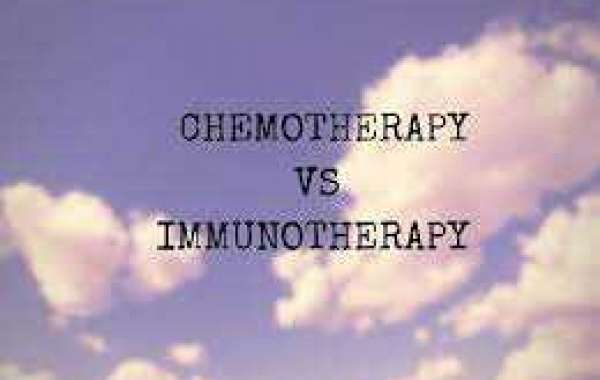Immunotherapy: Empowering Your Immune System
Immunotherapy, fundamentally, is a treatment method that empowers a patient's immune system to combat cancer. It equips the immune system to identify, target, and eradicate cancer cells within the body. This approach can be employed as a standalone treatment or in conjunction with other cancer therapies. Immunotherapy has gained significant prominence, offering a promising alternative to conventional treatments since the advent of chemotherapy in the 1940s.
Chemotherapy: A Direct Assault on Cancer Cells
In contrast, chemotherapy, often referred to as "chemo," utilizes drugs that directly destroy cancer cells. Its mechanism involves targeting rapidly dividing cells within the body, effectively addressing fast-growing tumors. Chemotherapy can be administered as a sole treatment or in combination with surgery, radiation, or immunotherapy.
Distinguishing Immunotherapy Vs Chemotherapy
The pivotal divergence lies in the modus operandi of these treatments. While chemotherapy launches a direct attack on cancerous tumors, immunotherapy empowers the patient's immune system. Immunotherapy has the potential to enhance the body's immune response and educate it on identifying and annihilating cancer cells.
Side Effects: A Crucial Contrast
Chemotherapy, by design, seeks to annihilate rapidly dividing cells in the body, which encompasses both cancerous and non-cancerous cells. This leads to well-known side effects such as hair loss and nausea. In contrast, immunotherapy often triggers side effects resulting from an overstimulated immune response. These can vary in intensity from mild to severe and, under specific circumstances, may even pose life-threatening risks, setting them apart from the side effects of chemotherapy.
Treatment Duration: A Diverse Journey
The duration of immunotherapy and chemotherapy is not uniform and is influenced by factors unique to the patient and the type of cancer they are battling. Immunotherapy can be administered over a predetermined number of treatments or continued indefinitely, contingent upon patient responses and their participation in clinical trials.
Awaiting Results
Short-term responses to immunotherapy and chemotherapy can significantly differ. Chemotherapy may lead to an immediate reduction in tumor size. In contrast, immunotherapy may necessitate a more extended period to manifest its effects as the immune system gears up to combat tumors. It is not uncommon for tumors to appear to grow initially, attributed to the influx of immune cells into the tumor, a phenomenon known as pseudo-progression. This, however, should not be misconstrued as treatment failure.
Effectiveness: A Game-Changer
One of the most captivating aspects of immunotherapy is its potential for long-term protection against cancer. While the effects of chemotherapy are transient, immunotherapy has exhibited the capacity to provide extended defense against cancer due to the immune system's ability to recognize and retain information about cancer cells. Clinical studies have indicated that favorable responses to immunotherapy Cancer can persist even after treatment ceases. Additionally, specific types and doses of chemotherapy have been found to enhance immune responses against tumors, providing a rationale for combining these treatments in specific scenarios.
Versatility in Treating Cancer Types
Immunotherapy's unique ability to harness the natural recognition mechanisms of the immune system for cancer cells imbues it with the potential to be effective against a broad spectrum of cancer types. It has significantly advanced the treatment of various cancers, including those historically resistant to chemotherapy and radiation therapy.
The Path to Informed Choices
Ultimately, the decision between immunotherapy and chemotherapy should be made in consultation with a healthcare team. Comprehending the disparities between these treatments is the initial step in making an informed decision regarding the most suitable course of action. The dissemination of knowledge regarding these advancements in cancer science is also pivotal for advancing research towards a cure. Every contribution, no matter how small, plays a vital role in ensuring progress in cancer research and the continued development of treatment options.










